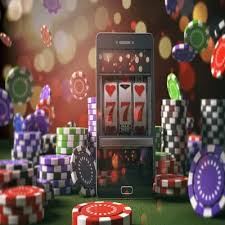
Luck is a mysterious force that has captivated human beings for ages. From ancient civilizations to modern societies, the concept of luck has woven itself through the fabric of our lives. In this article, we embark on a journey to explore the enchanting world of LUCKY STAR, revealing how serendipity impacts our lives and the secrets that lie behind this intriguing phenomenon.
Understanding Luck and Its Origins
The idea of luck is often intertwined with chance and randomness. Historically, various cultures have interpreted luck in diverse ways. Ancient Romans believed in Fortuna, the goddess of fate, who influenced people’s luck and fortune. Similarly, in Eastern cultures, luck is often associated with destiny and the alignment of cosmic forces. These beliefs reflect the human tendency to seek explanations for the unpredictable nature of life.
The Lucky Star Phenomenon
The phrase « lucky star » is often used to describe a source of good fortune or a positive influence in one’s life. It suggests the idea that some people are somehow favored by fate, leading to a series of fortunate events. This concept has permeated popular culture, inspiring books, movies, and even songs. The notion that certain stars or celestial bodies can bestow luck upon individuals adds a romantic layer to the already intricate relationship between humans and luck.
The Role of Belief in Luck
Psychologically, our belief in luck can significantly influence our behavior and decision-making. Research has shown that people who consider themselves lucky tend to have a more positive outlook on life. They are also more likely to take risks and seize opportunities, believing that good fortune will favor their choices. This self-fulfilling prophecy can create a cycle of luck, where positive beliefs lead to positive outcomes, reinforcing the idea of being « lucky. »
Lucky Symbols and Rituals Around the World
Throughout history, various symbols and rituals have been associated with luck. For instance, in many cultures, the four-leaf clover is considered a powerful symbol of good fortune. Similarly, horseshoes, particularly when hung above doorways, are believed to ward off bad luck and attract good fortune. These symbols not only serve as tokens of luck but also as reminders of cultural heritage and history.
Rituals for Invoking Luck

Many cultures engage in rituals designed to invoke luck. For example, tossing coins into fountains for good fortune is a practice found in various parts of the world, symbolizing the hope for future blessings. Similarly, New Year’s traditions, such as making resolutions or engaging in specific activities to attract good luck for the year ahead, highlight how deeply ingrained the concept of luck is in our social fabric.
The Intersection of Luck and Skill
While luck plays a significant role in our lives, it often intersects with skill and preparation. The famous saying « luck is what happens when preparation meets opportunity » emphasizes that being open to luck often requires an element of readiness. In sports, for instance, athletes may consider themselves lucky when they win, but their success typically results from rigorous training and practice. This intersection raises the question: to what extent can we manufacture our own luck?
Creating Your Own Luck
Many successful individuals attribute their achievements to a mix of hard work and favorable circumstances. By cultivating a positive mindset, remaining open to new experiences, and actively seeking opportunities, individuals can create an environment where « lucky » occurrences are more likely to happen. Networking and being in the right place at the right time are also critical factors; hence, social connections can amplify one’s luck.
The Psychological Impact of Luck
Believing in luck can have profound psychological effects. For some, it serves as a coping mechanism during challenging times. The hope that luck may change their circumstances can inspire resilience and perseverance. On the flip side, those who perceive themselves as unlucky may suffer from negative mental health outcomes, leading to feelings of hopelessness and despair. Thus, our relationship with luck can profoundly impact our well-being and outlook on life.
Luck in Popular Culture
LUCKY STAR and similar themes have become prominent in pop culture. From movies like « Lucky Number Slevin » to songs praising good fortune, the fascination with luck permeates entertainment. The characters in these stories often navigate a world governed by the whims of fate, making their journeys both relatable and entertaining. As audiences, we find solace in these narratives, reflecting our hopes and aspirations regarding luck in our own lives.
Conclusion: Embracing the Unknown
Ultimately, luck remains an enigmatic aspect of human existence. Whether one views it as a random chance or a cosmic intervention, the belief in luck shapes our experiences and perspectives. The LUCKY STAR phenomenon serves as a reminder of our innate desire for fortune and success. By embracing this uncertainty and maintaining a hopeful outlook, we can navigate the unpredictable tapestry of life, guided by our aspirations and the belief that perhaps, just perhaps, a lucky star is shining down upon us.

